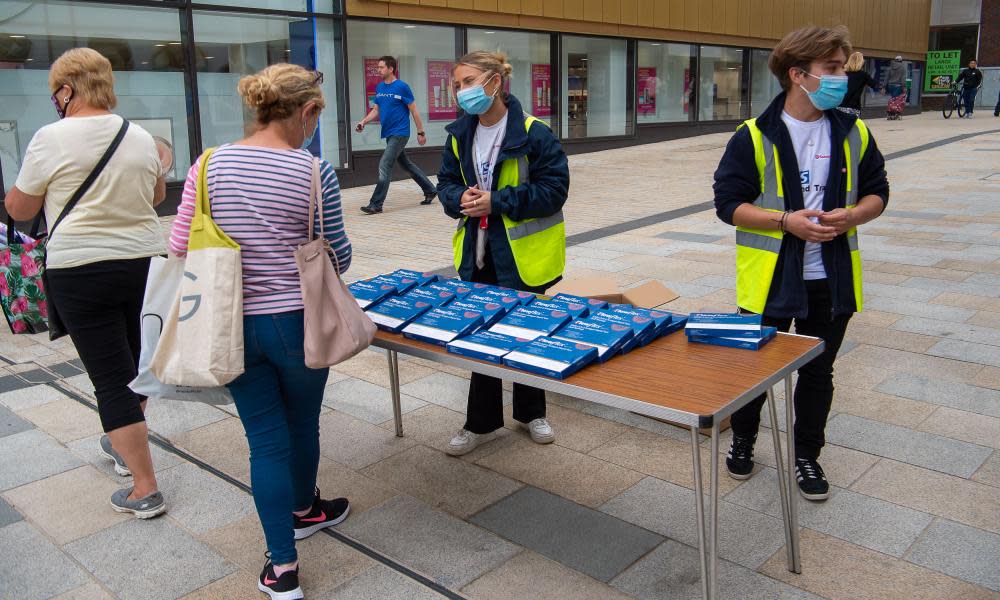It’s not too late for the British government to develop an effective Covid strategy

The emergence of a new and worrying variant of Sars-CoV-2 shouldn’t be a surprise to anyone. Omicron appears to be a real threat, and should give pause for thought on how countries can protect their populations against this and other similar challenges in the future.
The UK has helped to create the conditions for variants to emerge by opposing the granting of a patent waiver so that countries worldwide could step up the production of much-needed vaccines. At the same time, the British government has prioritised vaccinating its own. Vaccines are of course an important tool in protecting most individuals from severe disease when infected, but no single intervention, no matter how technologically sound, would keep the virus suppressed and under control in the population.
An appropriate strategy at this point would be one based firmly on all three pillars of an effective public health response – prevention, vaccination and control. They are not alternative courses of action. Their combined effect would not just be additive but synergistic – producing a greater benefit than the sum of the parts. Prevention means stopping us coming into contact with Sars-CoV-2 by reducing the risk that the air we breathe carries the virus. Vaccination helps us reduce the risk of illness if we come into contact with the virus. Control means that we help those who do become infected to avoid passing it on to others.
A key reason for the government’s lack of strategy and planning is that it is not interested in prevention and public health. Its instinct is to put the responsibility on individuals whenever possible, rather than taking collective action. This explains why the government emphasises individual hygiene measures such as washing hands and sanitising surfaces. The failure to highlight the well-established fact that the virus is predominantly transmitted through the air, rather than by touching surfaces or contact with large droplets, gravely hinders the actions needed around ventilation and filtration of air in enclosed spaces.
Health and safety at work legislation is explicit that it is the duty of employers to ensure that employees working in enclosed spaces have adequate supplies of fresh or purified air. The Health and Safety Executive has confirmed that the regulations still apply during the pandemic. But there is little sign of the rules being enforced. Without a rapid reversal of its 50% reduction in real-terms funding between 2010 and 2020, an enfeebled HSE is unlikely to be able to undertake the massive enforcement job needed to protect workers and the public.
People of all ages working in or visiting office, educational, retail, hospitality or leisure buildings should be able to feel confident that ventilation or air purification is sufficient to ensure their safety. The “scores on the doors” approach, similar to the food hygiene scores in places serving food, is advocated by the Independent Sage group of scientists and should be introduced as an urgent priority. This system would boost public confidence in entering all sorts of premises, and would undoubtedly reduce infections. The amount of money currently wasted on obsessive cleaning and sanitising regimes would go a long way for paying for permanent ventilation improvements.
Clear and consistent messages about the use of face masks are also needed. We, quite rightly, will only accept Covid-19 vaccines with a high level of effectiveness but seem content to promote the use of very basic face coverings that provide comparatively less protection than masks meeting international standards, such as KN95 or FFP2.
Controlling further spread from those who are unfortunate enough to become infected is an essential task that the UK has failed to do effectively. There is currently a large number of people becoming infected every day, and it is critical that we rapidly identify those individuals through testing and help them to isolate. We also need to identify and find their close contacts so that they can be tested. At present, close contacts of someone who has tested positive are requested to isolate, but only to get tested if they develop symptoms. This is not in line with international guidelines for controlling Covid-19.
The calls for an effective find, test, trace, isolate and support system have been ignored from the beginning. It isn’t too late to rebuild the system, based on local directors of public health working with the local NHS and primary care. But the dithering and delay that has bedevilled the government’s pandemic response now seems to have been consolidated into a permanent stance of inaction and obfuscation.
Omicron is a stark reminder that Sars-CoV-2 is an ever-changing and dangerous virus that we desperately need to get under control. We are a long way from eliminating it from our communities, but we can suppress it significantly and reduce disruption, illness and deaths. The government and its advisers must recognise that prevention, vaccination and control is the only sensible approach and, for the first time in the pandemic, set out a detailed public health-focused strategy.
Gabriel Scally is visiting professor of public health at the University of Bristol and a member of the Independent Sage committee

 Yahoo News
Yahoo News 
